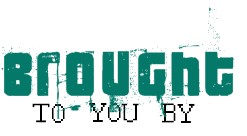GDC 2013: Getting serious with Ben McGraw about Sully: AVSRPG
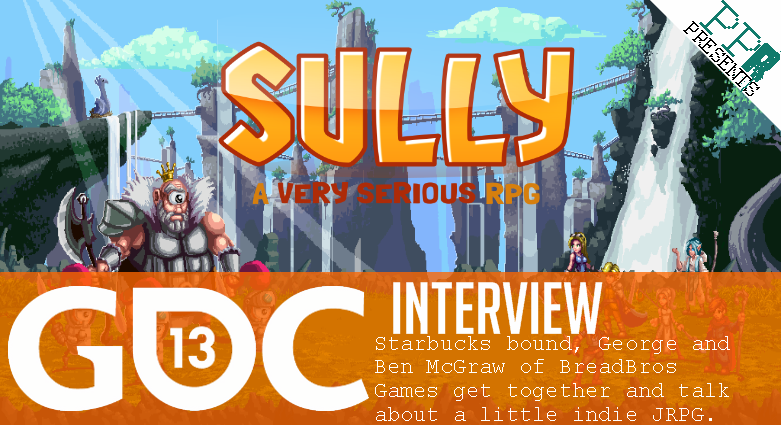
 stablished genres are constantly met with the challenge of keeping things refreshing while still applying the rules and distinctions that adhere to the structure of what makes the genre what it is. One of these established genres in particular is the JRPG. For every quality and merit you could argue for these types of games, there’s another waiting to combat it. The genre has become one of the most divided between gamers for over the last 10 years, but one man, among others, wants to help usher JRPGs back into its former limelight.
stablished genres are constantly met with the challenge of keeping things refreshing while still applying the rules and distinctions that adhere to the structure of what makes the genre what it is. One of these established genres in particular is the JRPG. For every quality and merit you could argue for these types of games, there’s another waiting to combat it. The genre has become one of the most divided between gamers for over the last 10 years, but one man, among others, wants to help usher JRPGs back into its former limelight.
Anxiously sitting at the local Starbucks caddy-corner near the Moscone, I awaited the arrival of Ben McGraw of Breadbros Games after meeting him earlier this week to discuss his current project, Sully: A Very Serious RPG. As I finish spreading the cream cheese on my bagel, we prepare to discuss one of the most promising JRPG games from the indie scene yet.
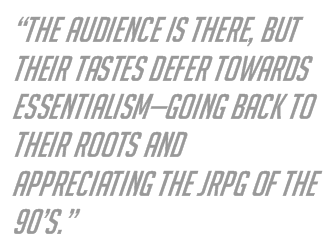 McGraw understands the niche nature of JRPGs, but doesn't consider them any less relevant to gaming as a whole.
McGraw understands the niche nature of JRPGs, but doesn't consider them any less relevant to gaming as a whole.
"I understand that JRPGs can be considered a bit of a niche genre, generally having a smaller fan base than say, Call of Duty. But we're gradually finding that the following for the JRPG on the western scene is a lot bigger than you would think,” he said.
Evidence points out to studios like Zeboyd, Muteki, and Freebird Games and their series of projects that hit the indie scene every year, but McGraw’s vision involves both catering to the fans of the staple and attempting to change the negative perception of those who don’t care for the staple altogether.
Dating back to 1997, Sully: A Very Serious RPG actually stemmed of off a work in progress game of the same ilk known as the Sully Chronicles, a game used as a demonstration for a developer session that consisted of over 40,000 in attendance. Knowing the programmer of Sully Chronicles personally, McGraw was so impressed with the game that he requested to actually build the concept into a full-fledged title.
“The audience is there, but their tastes defer towards essentialism—going back to their roots and appreciating the JRPG of the 90s,” McGraw continues. “And the funny thing about it is how this kind of mindset spans across both cultures, west and east, because the modern day JRPG is just as inundated as the annual release of Call of Duty.”
He notes that the formula has seen its fair share of recycled ideas among the mass of games released shortly within each other that are filled with similar concepts to the same effect. “While I can’t speak to the Japanese gamer as far as my vision goes, I most certainly can speak to the American one.” As McGraw cites Final Fantasy IV and Chrono Trigger being the common examples of popular public opinion in defense of the genre, he wants to create a game that will deliver, to both those kinds of fans and brand new gamers, the landscape of JRPGs.
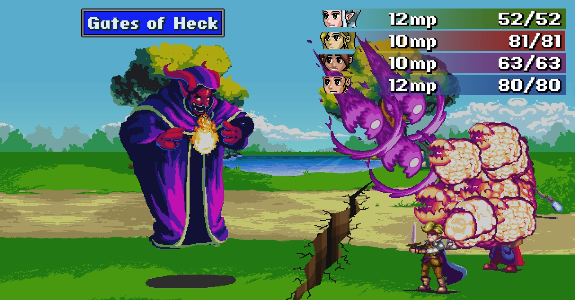
So the goal is kept in mind, but what about the challenge of meeting it? JRPGs have an association with certain elements, some of which are a part of the problem. BreadBros takes one of the most interesting directions to alleviate the issue. The common among the reviled traits of the genre is the grind, or as McGraw puts it, “the A-button marathon.”
Most players today don’t have the time or patience to invest in battles that simply serve as a stepping stone to prepare for the significant battle, and McGraw continues mentioning how some of the current battle systems available are nothing more than superficial fitness tests of finger pressing to select menu options as fast as you can without any thought of the actual battle at hand. So, the first order of business to disassociate from those perceptions was wildly changing the game into three different styles of play from the beginning.
Sully can be played in one of three ways: The standard battle mode plays out more traditionally with an overworld map, quest, battles, and so-on. The second mode consists of a Boss battle mode where the player goes through the usual quest business, except when encountering the boss. Skill set and experience points will automatically be elevated to a point where you could stand a chance against your foes, and will only fight them without any in-between battles while all story and narrative movements remain intact.
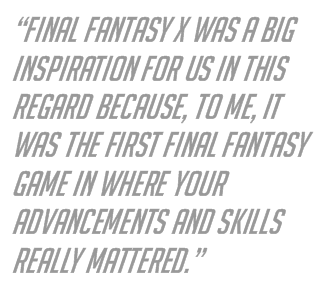 The last mode is the strangest of the three: No battles at all. This third mode of play will rely on delivering content to the player through direct exploration of the overworlds and towns, as well as the quests and character interactions that move the story along. Battles simply exist as events that automatically happen and come to your attention, essentially emulating a particular trope from Earthbound that allowed you to skip random battles altogether if you were stronger than the enemies within the area. McGraw cites that the inspiration for these choices of play was inspired from an article based on Mass Effect. The author loved the enriched story and choices but didn’t care for combat, and wanted an option where you could play through the game his way. And while many of his readers got up in arms from their self-entitled soap boxes, McGraw found the idea brilliant and went with the classic fuck-it-I’m-indie approach by implementing the concept within Sully.
The last mode is the strangest of the three: No battles at all. This third mode of play will rely on delivering content to the player through direct exploration of the overworlds and towns, as well as the quests and character interactions that move the story along. Battles simply exist as events that automatically happen and come to your attention, essentially emulating a particular trope from Earthbound that allowed you to skip random battles altogether if you were stronger than the enemies within the area. McGraw cites that the inspiration for these choices of play was inspired from an article based on Mass Effect. The author loved the enriched story and choices but didn’t care for combat, and wanted an option where you could play through the game his way. And while many of his readers got up in arms from their self-entitled soap boxes, McGraw found the idea brilliant and went with the classic fuck-it-I’m-indie approach by implementing the concept within Sully.
Ben admits that the no battle alternative does cut away some content that can only be accessed through battling, and is quite confident of the battle system altogether; he understood the need to ensure that everyone found a way to play Sully while having the option to enjoy it in their own way.
For those who do choose the battle mode path, BreadBros set out to make sure that they made the combat feel as tactile as possible.
For starters, the party members recruited will have considerably varied skill sets that will set them apart from the ranks that you have at your disposal when choosing the lineup for party configuration. Status ailments and battle conditions matter as opposed to being shallow background noise to the combat, and players must take stock in how they respond to these conditions as they occur.
“Final Fantasy X was a big inspiration for us in this regard because, to me, it was the first Final Fantasy game in where your advancements and skills really mattered,” added McGraw.
Each zone will demand its own course of strategies to conquer their native threats, and McGraw makes it a point where battling will feel like a true exercise of skill and wit.
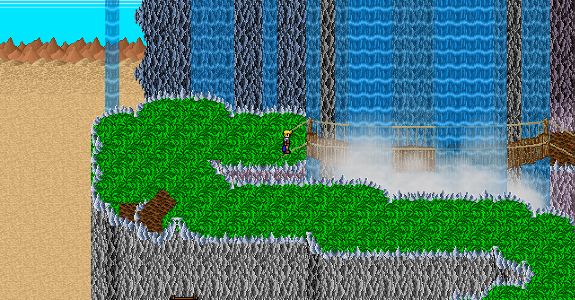
“Again, looking back at FFX," he continued, "using tactics is what got you ahead, like casting poison against larger enemies or blind against enemies with large attacks and lightning against mechanical enemies. It’s annoying to think about an RPG that demands your time and not your attention.”
As I was finally digging into my cheese bagel, I approached McGraw about the presentation of Sully and asked if he plans on implementing the same accessibly philosophy that would cater to everyone as far as design and dialogue were concerned.
McGraw's eyes lit up. “Going back to the argument of JRPG associations, I originally wanted to stray away from the strict dichotomy of battlefield graphic design differing greatly from the overworld art in almost every JRPG you can think of, but because our artist was able to deliver a lot of the different styles that Sully uses, it worked out for our interests and also gave a feeling of prestige doing it because of the source material anyway.”
The retro-inspired visuals go all out. From the detailed pixel art to parallax scrolling—the aesthetic is reminiscent of Lunar Silver Star meets Valkyrie Profile; McGraw was happy to muse these particular titles as an example, but then he cited Earthbound again when it came to the story and the humor that’s involved.
Sully: A Very Serious RPG doesn’t pull any punches in its presentation, and the irony hits even harder as the premise opens up to the main character Darin, someone who has a dad and a mom and isn’t left in some jaded role with a reluctant outlook towards saving the world just because he’s the chosen one and the responsibility is up to him alone—no, he’s actually just some dude you play as. Sully, the namesake of the title, is kind of a dick who’s also a talking clam. Darin and Crystal are two teenagers nearing their pinnacle coming-of-age moment, and they're focusing on efforts to have one last adventure before their lives change forever.
“I’ve been penning as the super 80s summer-rom-com of JRPGs and only feel just a bit slighted that I couldn’t get John Cussack directly involved,” McGraw joked. These and so many other elements between dialogue and scripting is what makes the game engaging.
“I wanted to deliver an all around experience as far as our game is concerned. We have a lot of things for the characters to explore, and the writing is light and humorous, all on top of a dynamic world.”
McGraw wanted to focus on how the narrative reacted and changed as you kept playing. Completing an area will leave the townsfolk feeling resolved, but they would never react to the reappearance of the heroes when backtrack or large scale events happen. McGraw ultimately wants to make sure that he delivered a large and expansive world that felt alive.
As we finished our meeting, McGraw reminded us that Sully is available for preorder directly from BreadBros website with a $5 discount off of the total price for incentive. Be sure to look for it later this year, as Sully: A Very Serious RPG is poised to turn some heads.
 BreadBros,
BreadBros,  GDC 2013,
GDC 2013,  Indie Games,
Indie Games,  JRPG,
JRPG,  it's so silly | in
it's so silly | in  Features
Features 



